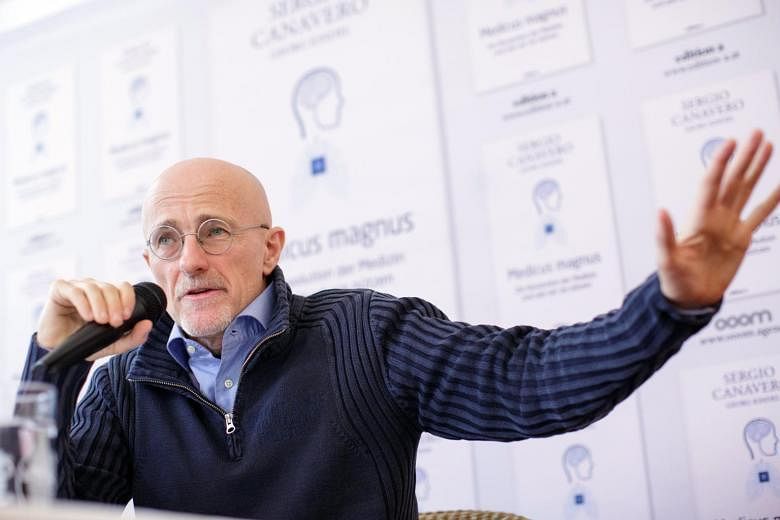HARBIN (CHINA DAILY) - A human head transplant carried out on a corpse by doctors in China- reported to be the first such surgery in the world - has caused controversy among medical experts.
The transplant was announced by Italian professor Sergio Canavero, director of the Turin Advanced Neuromodulation Group, at a news conference in Vienna last Friday (Nov 17), the Daily Mail reported.
The procedure was carried out by a team led by Ren Xiaoping, a surgeon at Harbin Medical University, he said. A similar operation on a live human will take place "imminently", he said.
The transplant was completed in Harbin, Heilongjiang province. During the 18-hour operation, Ren and his assistants successfully reconnected a severed head with the spine, nerves and blood vessels of a body, Ren told Science and Technology Daily on Sunday.
The data, procedure and outcomes will be published in the US journal Surgical Neurology International in a week, he said.
Ren and Canavero have partnered in the past few years to attempt a head transplant. The surgery transplants a healthy human body, normally donated by a person who was brain dead, to the head of a patient whose brain was healthy at the time of death but whose body was in some way damaged.
Ren grafted a monkey's head onto the body of another monkey last year, and the animal lived for 20 hours after the operation.
"The operation is of great significance," Ren was quoted as saying. "Head transplants are unprecedented in human medical history. There are a lot of challenges to be addressed to complete the surgery… and we have made an innovative plan."
Ren did not answer calls from China Daily on Monday.
Zhai Xiaomei, a professor in life ethics at Beijing Union Medical College Hospital, said because the operation was completed on a corpse it does not have much practical significance.
"They are unable to prove whether the operation was successful or not," she said. "In addition, the academic circle generally believes a successful similar operation on a live human is not possible, and many technical barriers need to be solved first."
Ethical questions such as personal identity will arise with such surgeries, she said.
"It is different from normal transplants, such as heart transplants," she said. "Suppose the head of Person A is transplanted to the body of Person B. Who will be the new person after the surgery, A or B?"
There is no answer at present, and experts are still discussing the ramifications, but more experts believe a functional head is more meaningful than a body in defining a person, she said.
Li Wei, a transplant surgeon at the General Hospital of Armed Police Forces in Beijing, said many obstacles remain for successful head transplants.
"The transplant requires the conjunction of muscles, blood vessels and neurons, but the repair of damaged spinal nerves is still impossible at present," he said.

